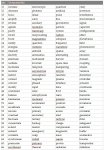I've had half an idea vaguely floating in my head about how to do Star Trek style technobabble science in a sci-fi game.
This isn't for any particular system. It's just kinda conceptual.
So you have a problem, and you need to solve it. You decide to do science to it.
This involves forming a solution which has three parts. [verb] the [adjective][noun] where each of those things is a randomly generated bit of technobabble. You make three rolls of some kind, each of which uncovers one of those words. When you have all three, you do the science - you invert the co-variant array, or you depolarise the quantum filament or what-have-you.
An example. Locked in a cell, you need to get out. The rogue-type is trying to pick the lock, and the mage or psion is trying to influence the guard, whatever. But the scientist? She's doing science to it.
She makes three checks of some kind (I haven't worked that bit out yet). She fails a couple, but can keep trying. It takes her 8 rounds/minutes/hours (haven't worked that bit out yet). First check she gets "Amplify". Second and third checks she fails, but on the fourth she gets "Psitronic". Three more failures, and on the eighth check she finally gets "Battery".
"Hey guys!" She calls out. "I think I can get us out of here! All I need to do is amplify the psitronic battery!"
Well, that's the basic concept. It needs some work. Presumably futuristic cell doors have psitronic batteries.
This isn't for any particular system. It's just kinda conceptual.
So you have a problem, and you need to solve it. You decide to do science to it.
This involves forming a solution which has three parts. [verb] the [adjective][noun] where each of those things is a randomly generated bit of technobabble. You make three rolls of some kind, each of which uncovers one of those words. When you have all three, you do the science - you invert the co-variant array, or you depolarise the quantum filament or what-have-you.
An example. Locked in a cell, you need to get out. The rogue-type is trying to pick the lock, and the mage or psion is trying to influence the guard, whatever. But the scientist? She's doing science to it.
She makes three checks of some kind (I haven't worked that bit out yet). She fails a couple, but can keep trying. It takes her 8 rounds/minutes/hours (haven't worked that bit out yet). First check she gets "Amplify". Second and third checks she fails, but on the fourth she gets "Psitronic". Three more failures, and on the eighth check she finally gets "Battery".
"Hey guys!" She calls out. "I think I can get us out of here! All I need to do is amplify the psitronic battery!"
Well, that's the basic concept. It needs some work. Presumably futuristic cell doors have psitronic batteries.

